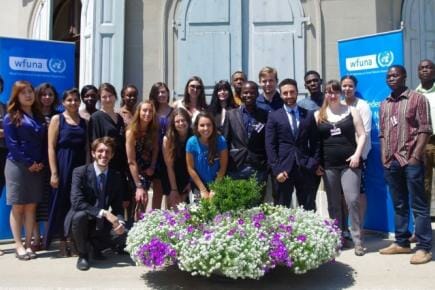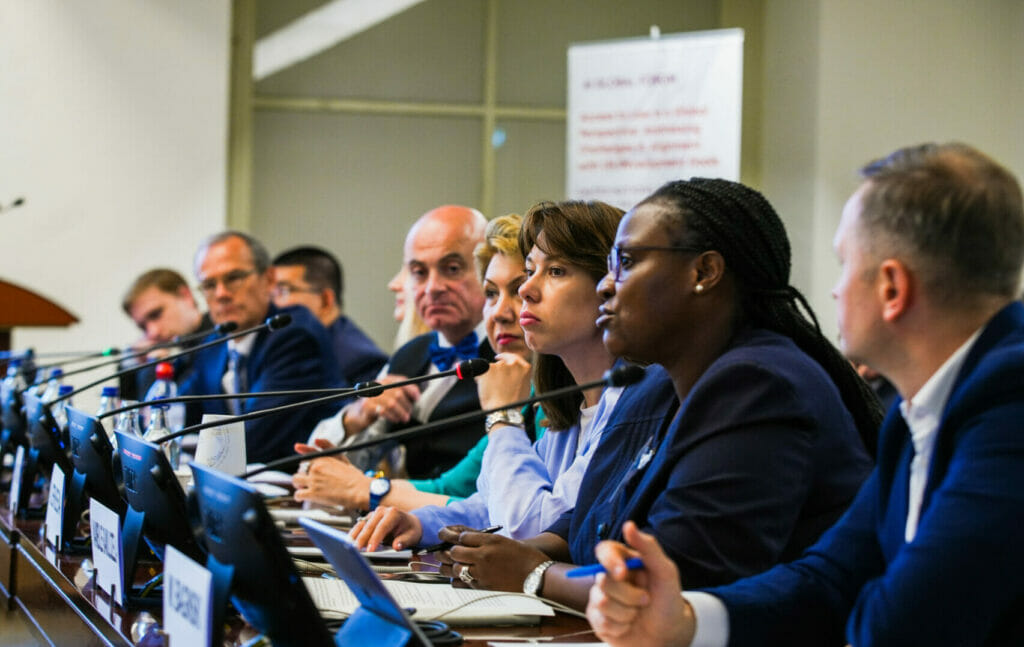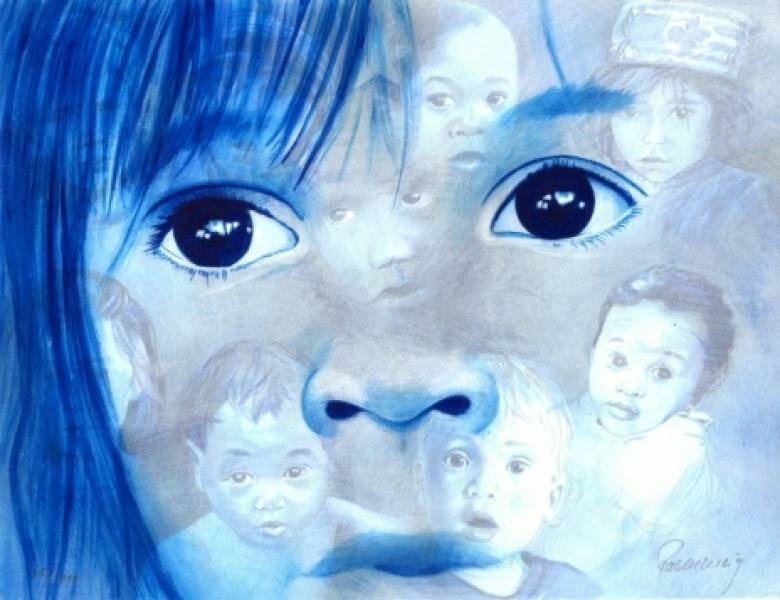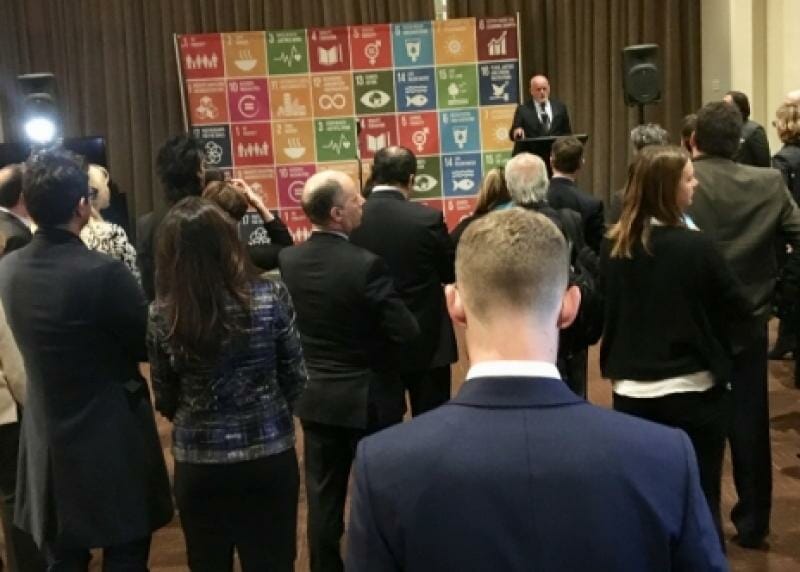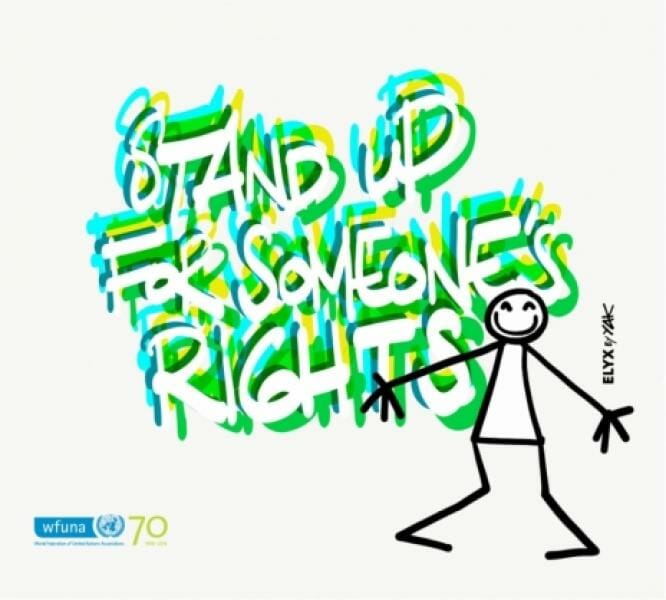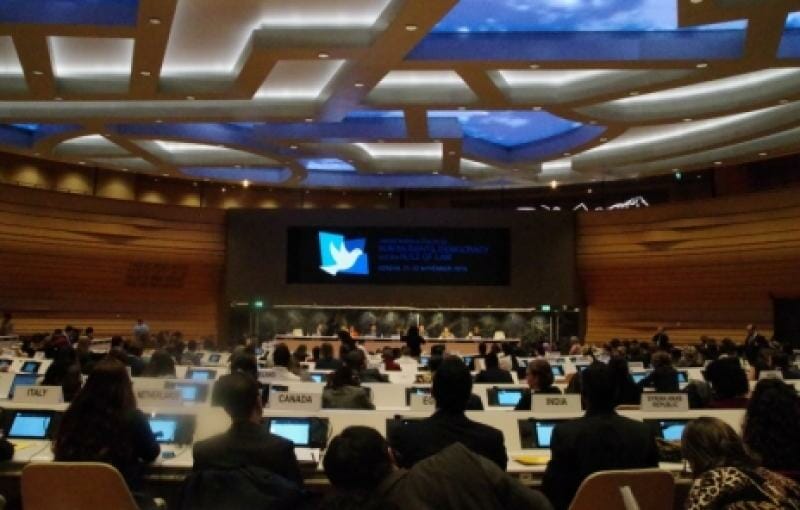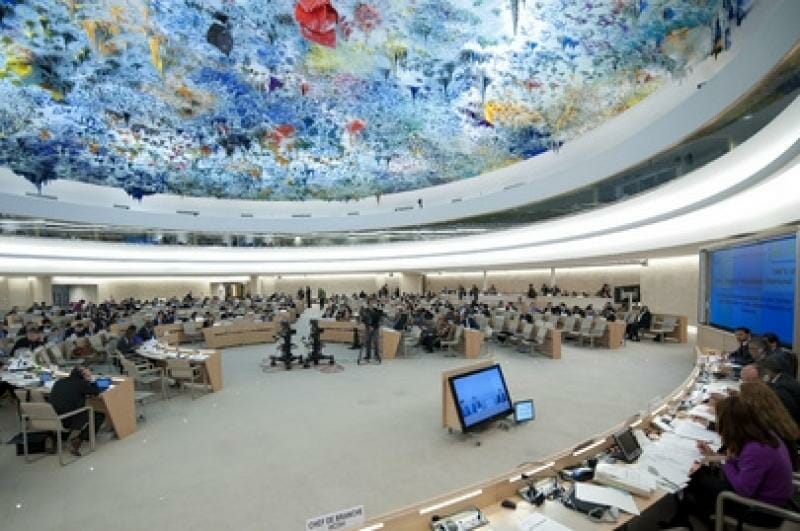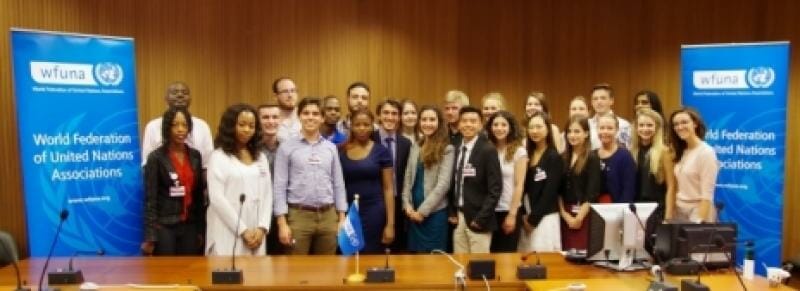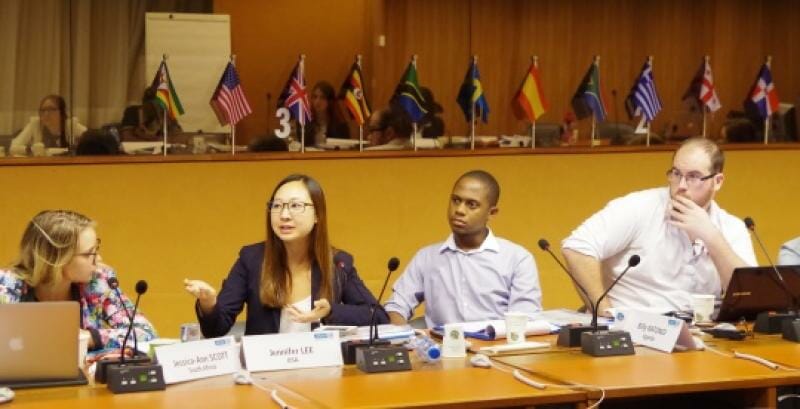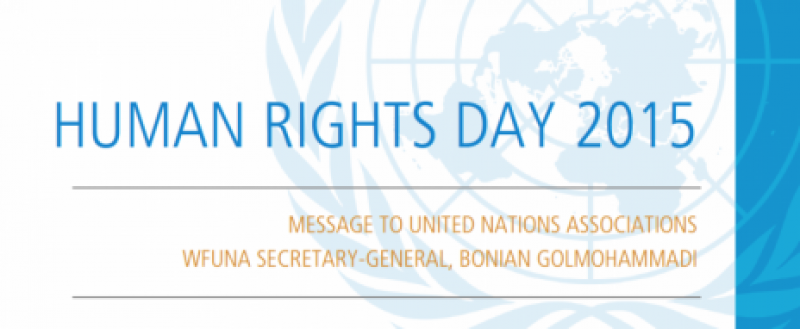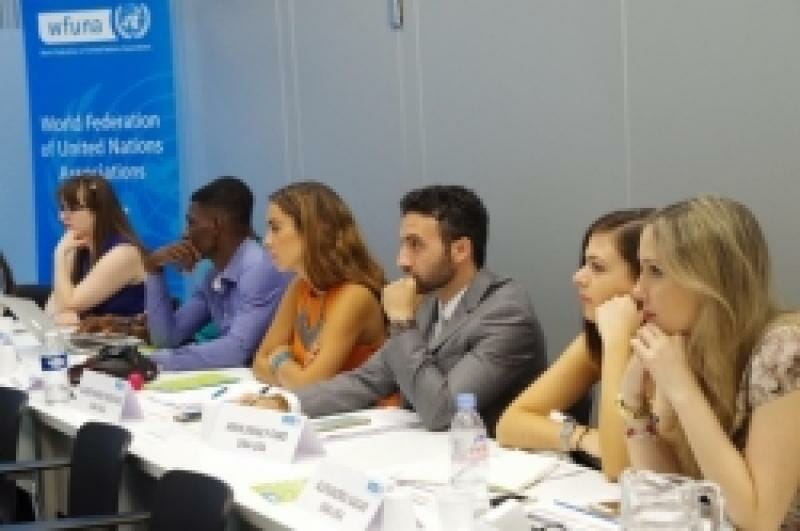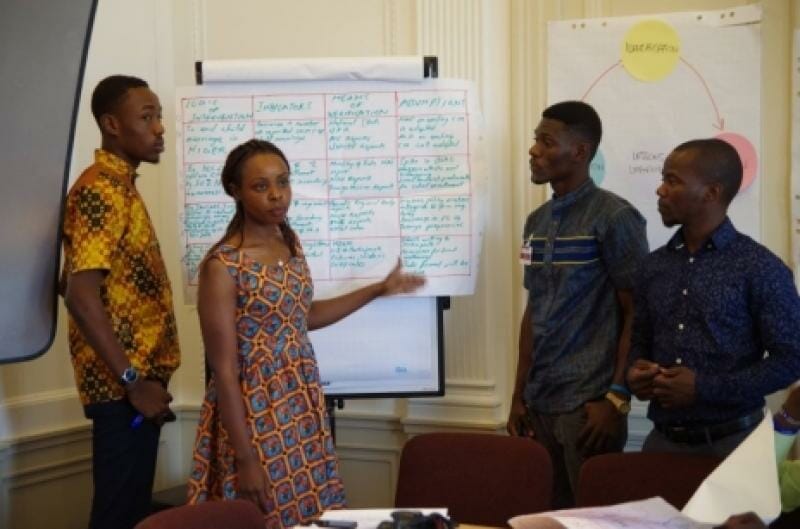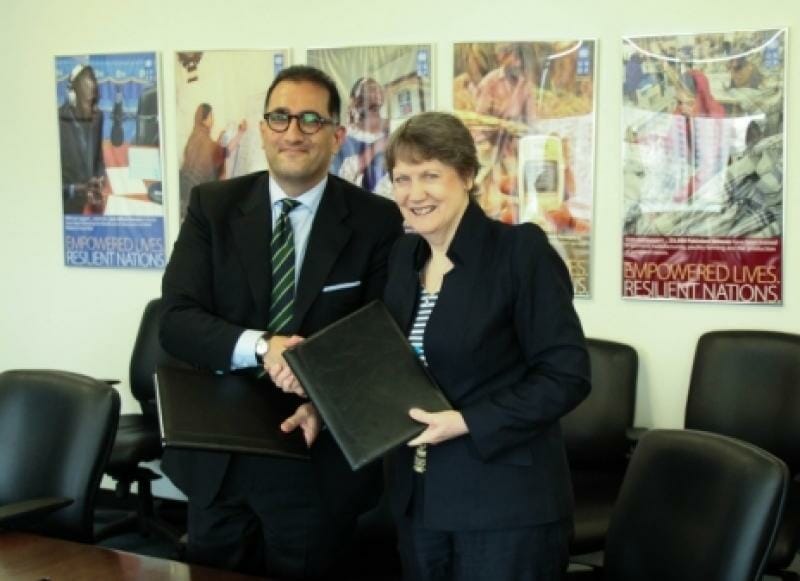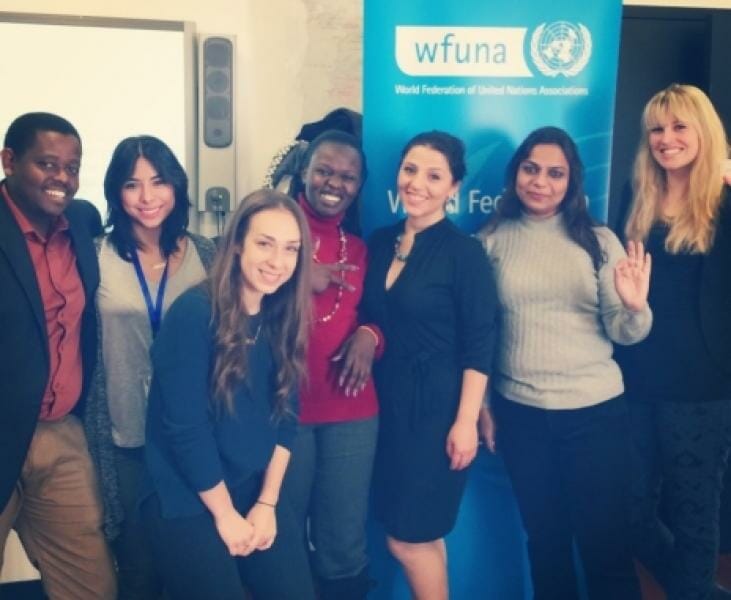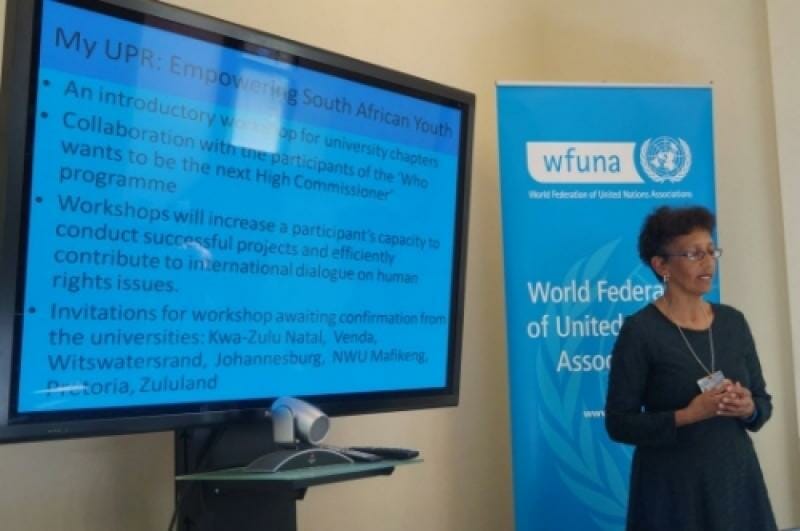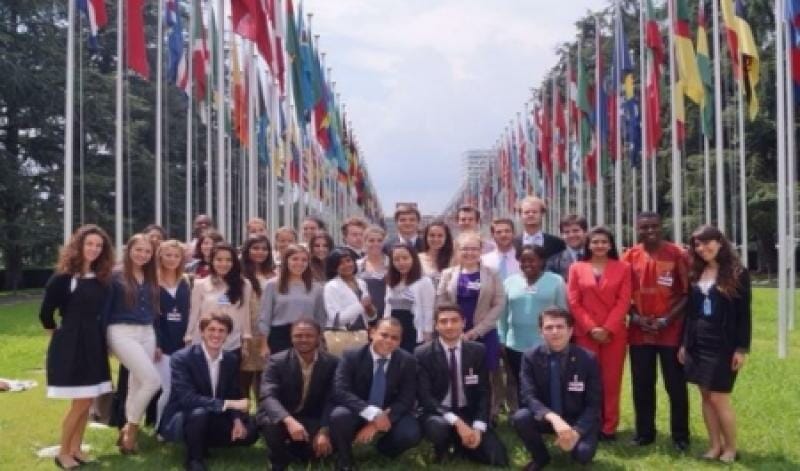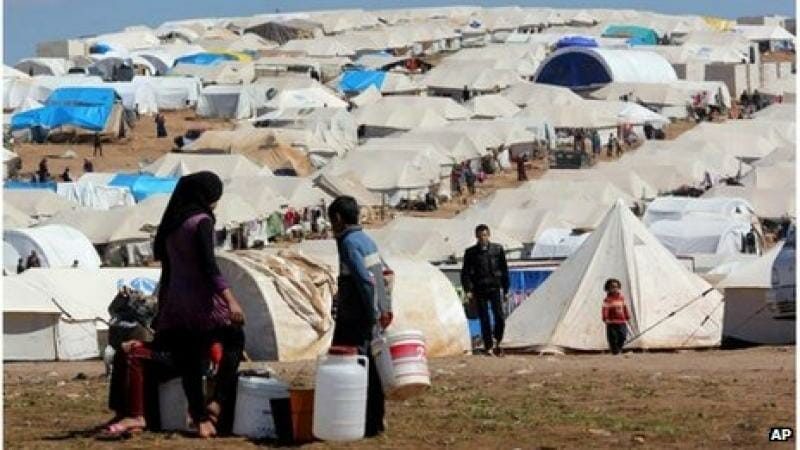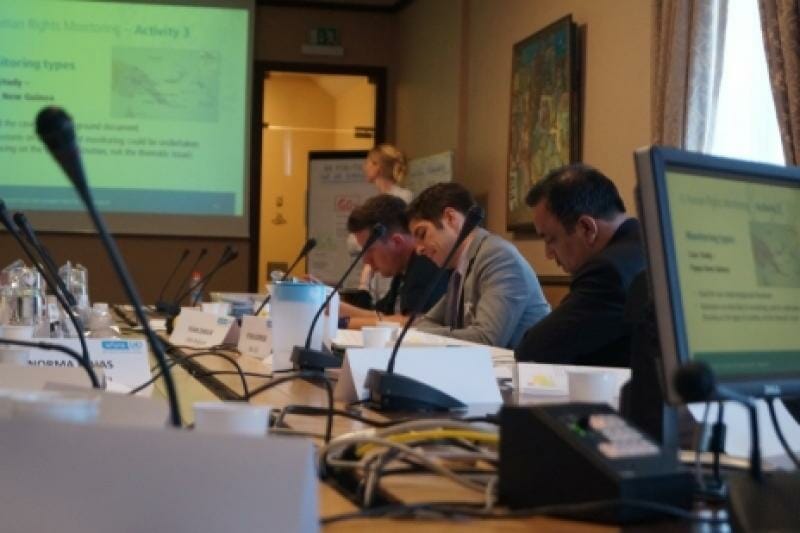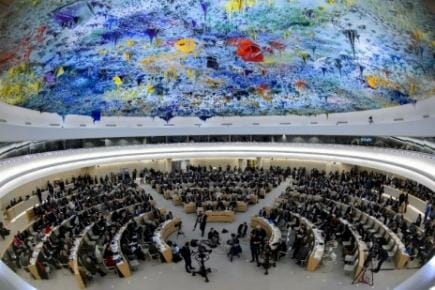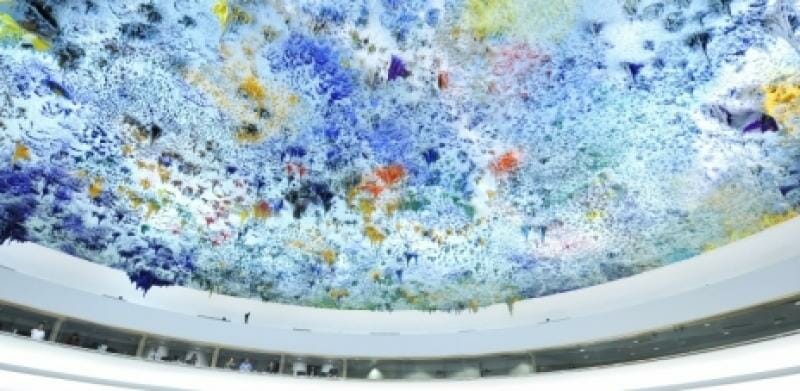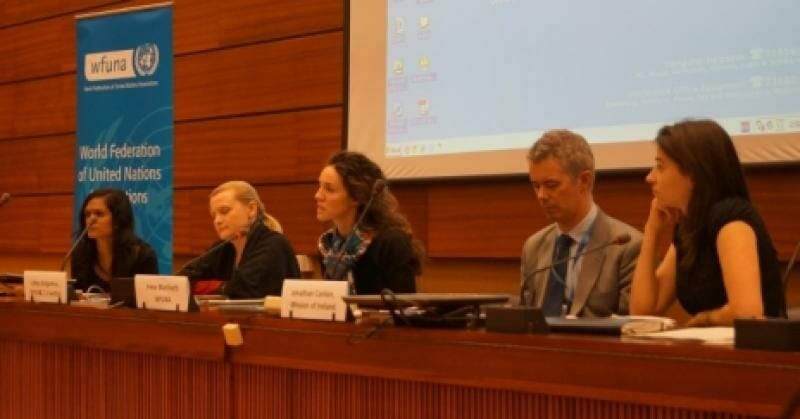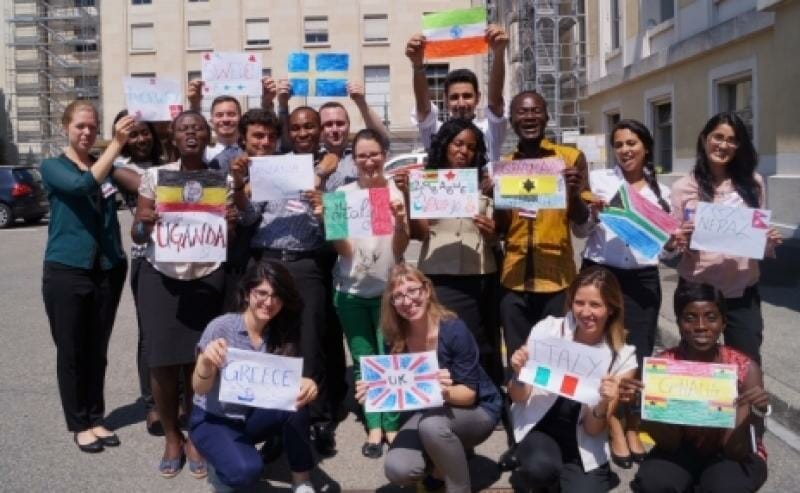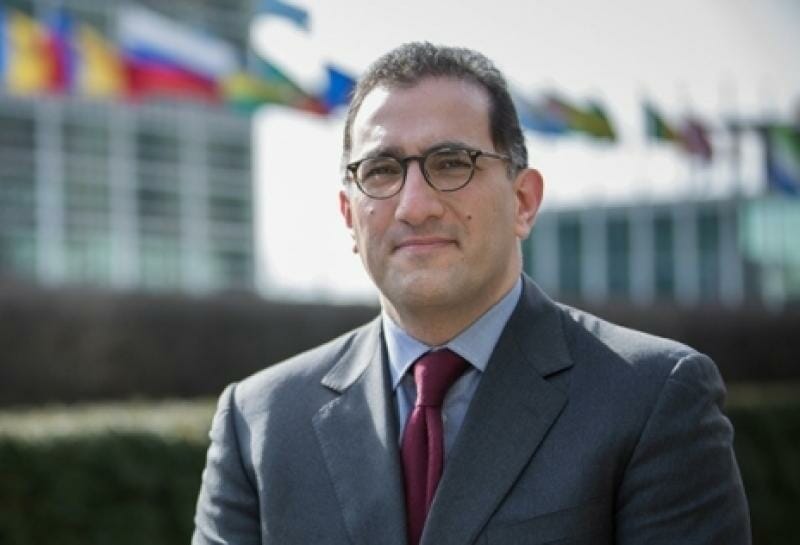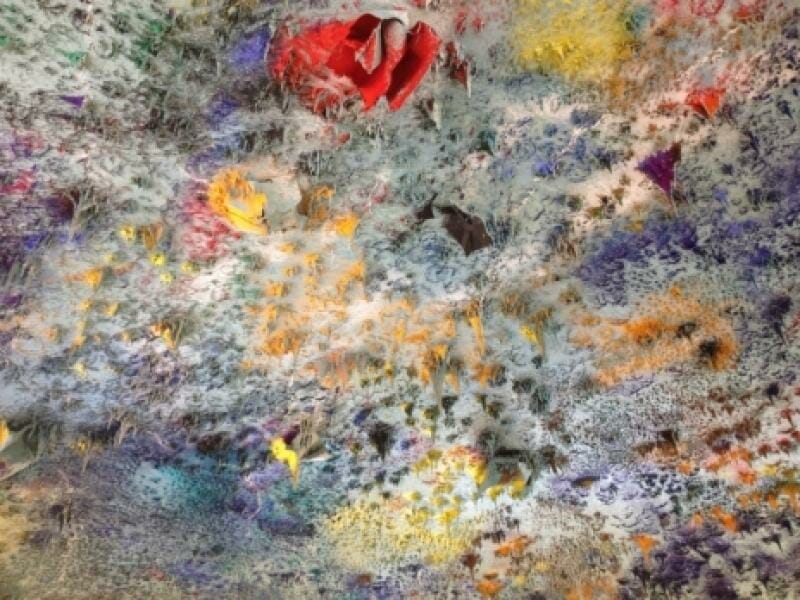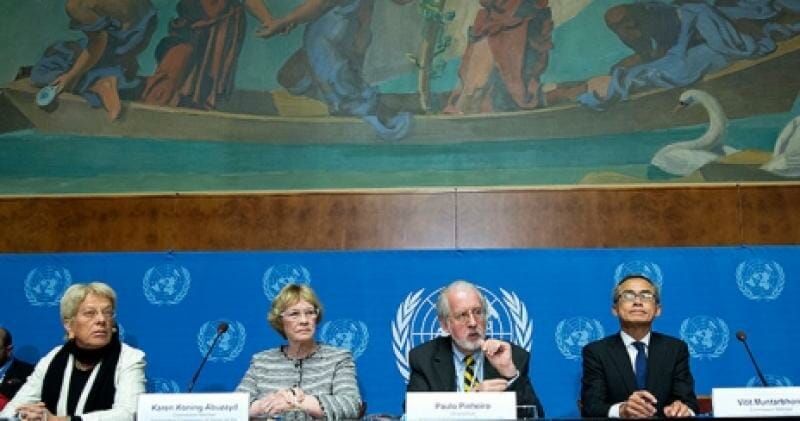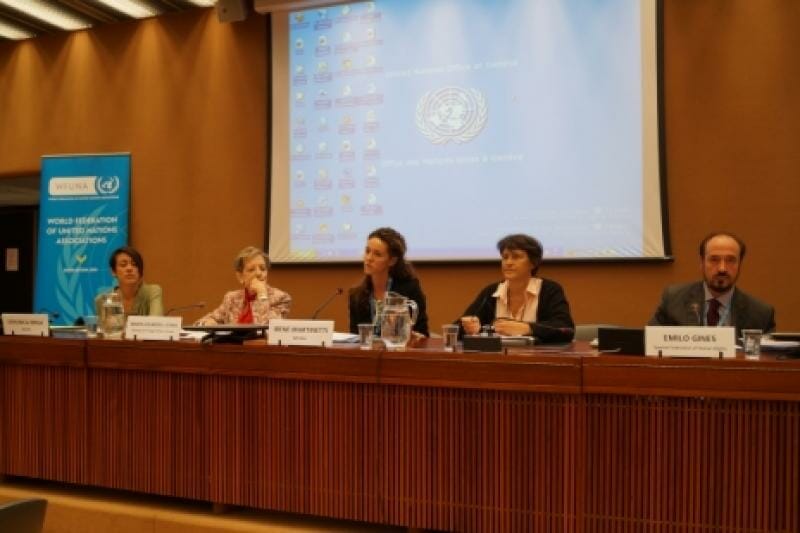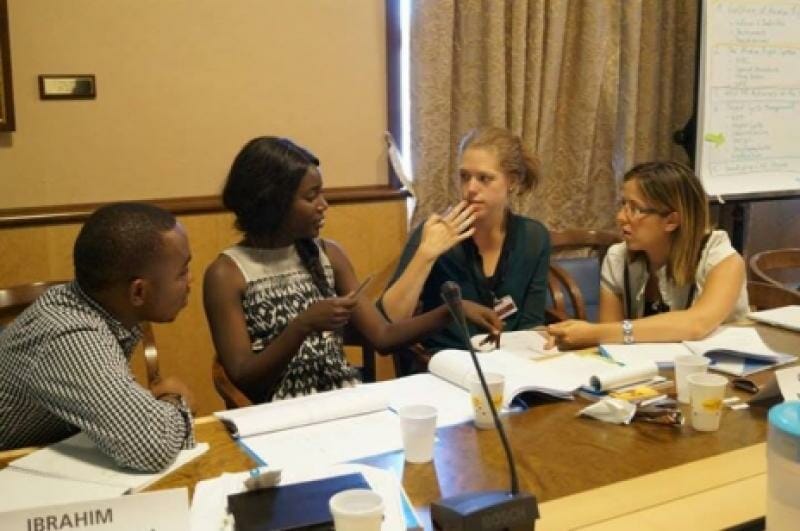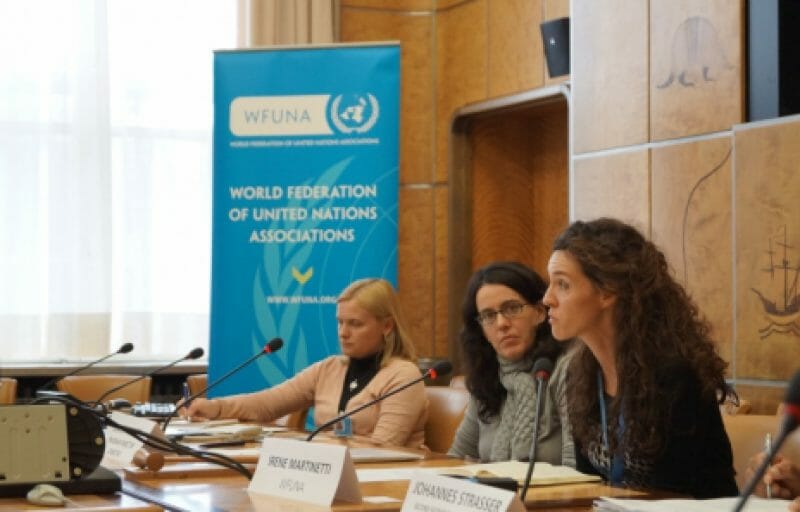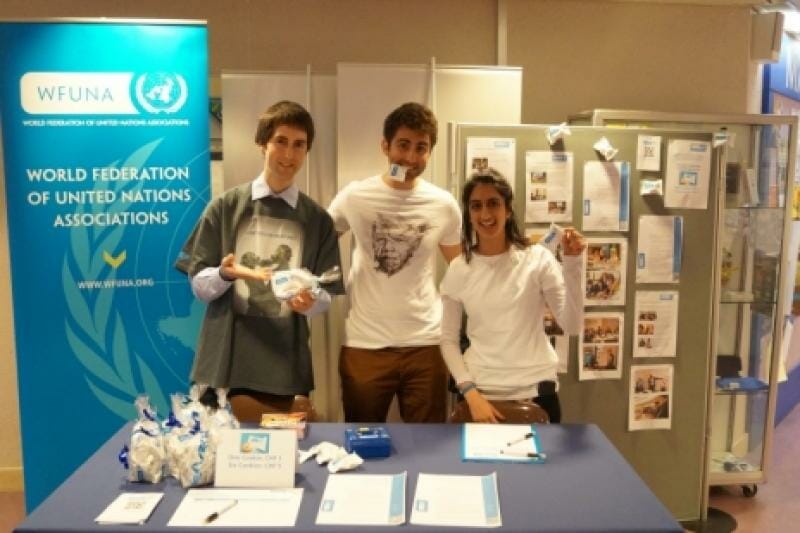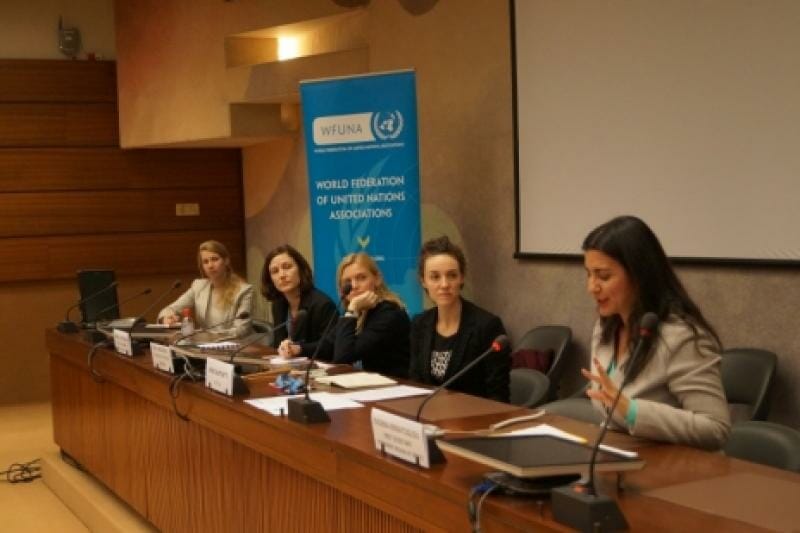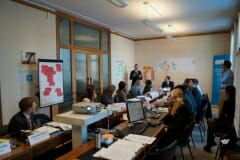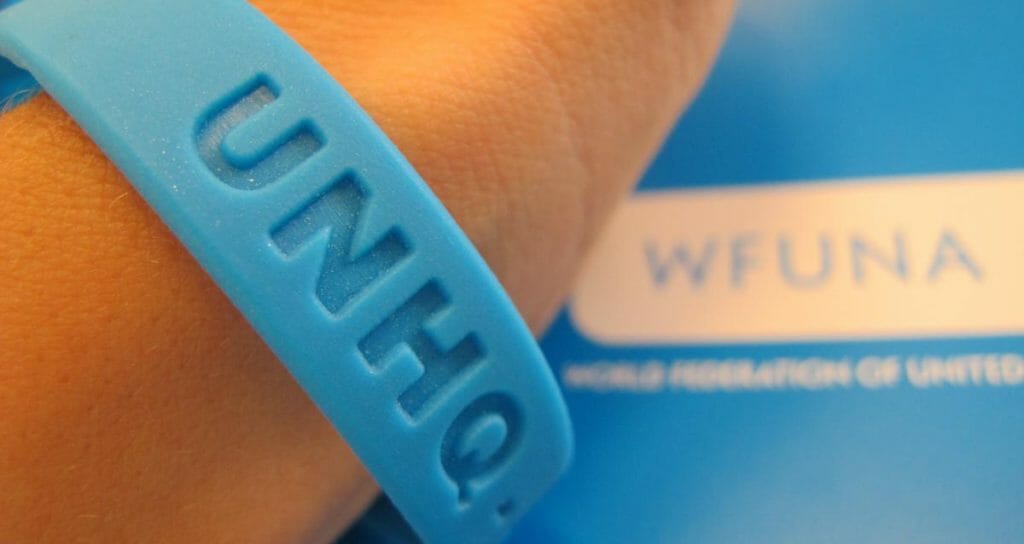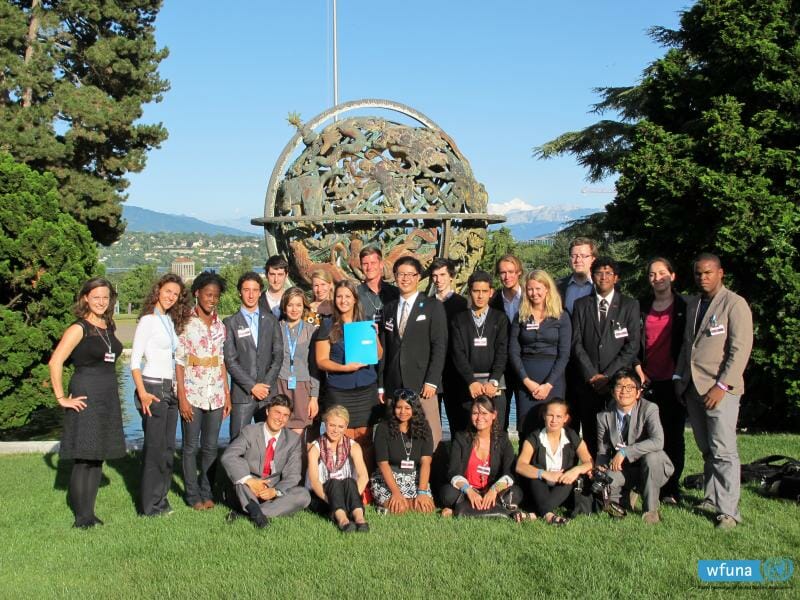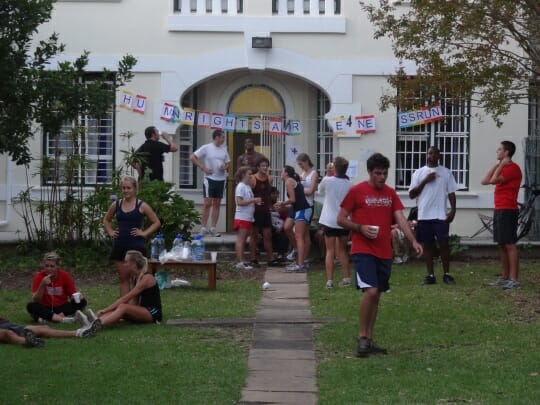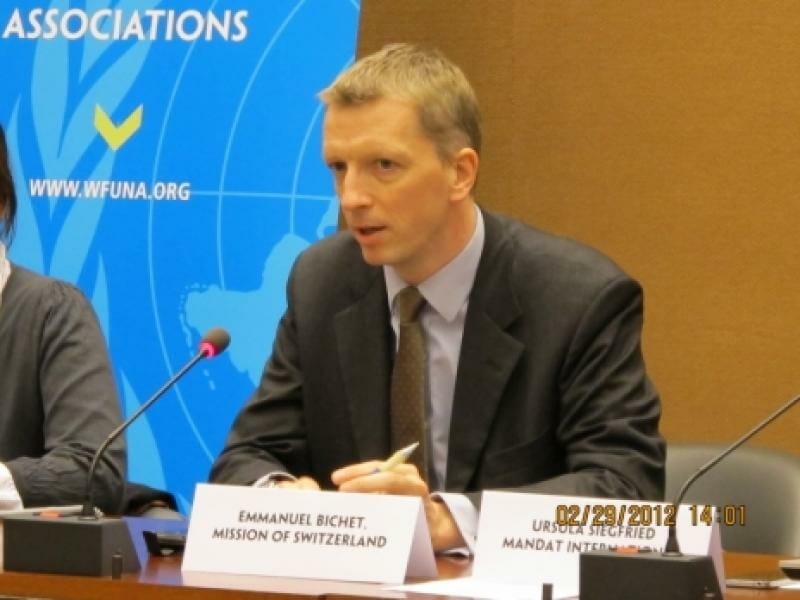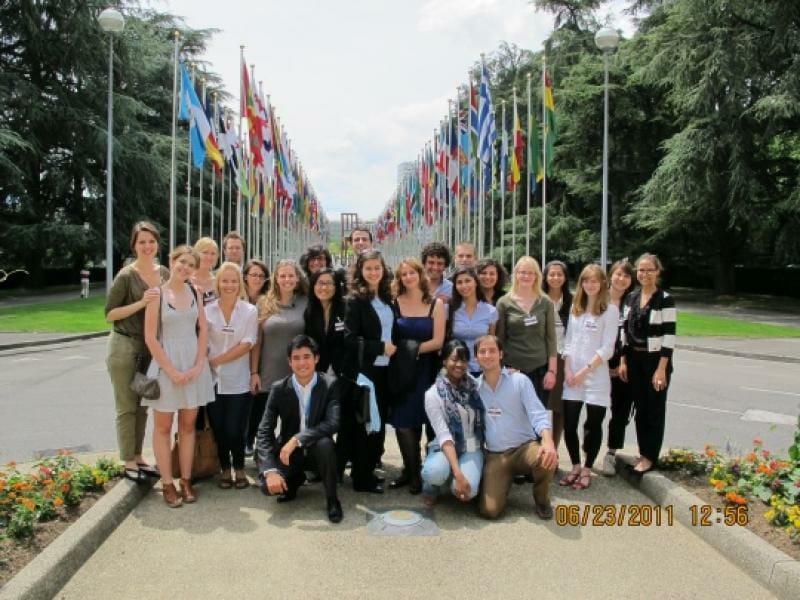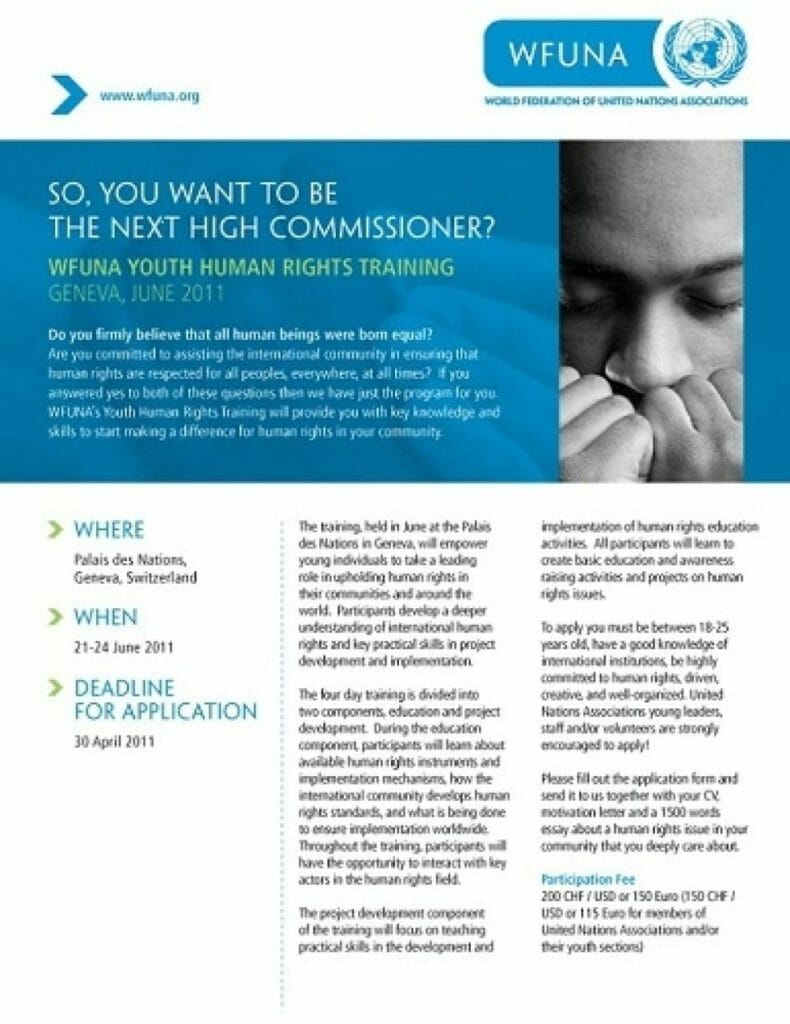Monday – Introduction to the UN and to Human Rights
We welcomed the participants at the UN headquarters and Aziel Goulandris started the training with welcome remarks and an introduction of the training as a whole. Every participant introduced themselves, saying their names, where they are from, and what they wish to learn from this program. We then proceeded to a guided tour of the UN. The participants were fascinated seeing the significant conference rooms and listening to the history of the United Nations Office in Geneva.
For lunch, we took them to the cafeteria at the UN and in the afternoon, Irene Martinetti introduced the Human Rights Council. Next, we had the first participant present “Human Rights in my country”, a brief presentation we required them to prepare weeks before the start of the program. Pooja, from India was the first participant to do this and her presentation was remarkably detailed about HR issues in India. Then, Bruno Donat from UNMAS came by and presented himself and his organisation. His presentation became very sensational, when he showed pictures which he took on his field experiences, negotiating peace. When he left, Lidiya Grigoreva, Office of the Director-General, introduced the UN in Geneva. She gave explicit details of how the UN works. We ended the long day by explaining what the participants can do in Geneva and what the popular summer attractions were.
Tuesday – The Human Rights Council Mechanisms
The second day started with a quick morning recap of the previous day and then the next few “Human Rights in my country” presentations about HR in USA, Zimbabwe, and Kenya. Afterwards Stee Asbjornsen, Special Procedures Branch OHCHR, presented the Special Procedures and gave the participants a case study on Right to Education. Then Aziel explained the Universal Periodic Review.
After lunch at the Graduate Institute, we had three more captivating presentations on “Human Rights in my country” and soon after Bob Last, Senior Human Rights Advisor, gave a presentation about the States Perspectives on Human Rights. He had a short presentation, as he wanted to have a more interactive session, in which the participants could freely ask questions.
Wednesday – The Human Rights Council Mechanisms
We started the day with the Universal Periodic Review (UPR) Role Play presented by Naïs Mouret. First, we showed a short video clip of a real-life negotiation conference. The goal was to engage the participants into a negotiation about Human Rights regarding an imaginary republic – Arfuna. We split the participants into 21 groups – ten countries, five NGOs, and six Ministry departments. Each participant represented one country and one department. The NGOs had two team-members. The role play kick-started and the negotiation went well; it was a success.
In the afternoon the participants had an opportunity to meet Kevin I. Koh, from the Human Rights Treaties Division, OHCHR, and he gave a very detailed presentation about the Treaty Body System. All the participants were very fascinated at how he explained the topic, describing it in black-and-white facts. After his speaking, Leon Saltiel, UN Watch, presented the Human Rights Council from an NGO’s perspective. Later in the evening, we invited the participants to dinner at a popular restaurant for locals in downtown Geneva.
Thursday – Project Cycle Management
The day started with a morning recap and was followed with the Project Cycle Management session. This activity was for participants to assimilate what they have learnt with the context in their country. The goal was for them to plan human rights education and awareness raising projects. They divided themselves into four groups and started working, using the log-frame and work-plan tools. The WFUNA staff rotated around each group to assist with any difficulties or uncertainties. In the next six months, the participants will continue to work on their projects with their corresponding UNAs in their home countries.
In the afternoon, the participants continued on their projects. Before the day ended, we split the participants into two teams and conducted a quiz session. Both teams were pleasingly strong and very eager to win.
Friday – Project Cycle Management
On the last day, we carried on with the projects. We brought them to the Serpent Bar so they had more space to start displaying and writing down their ideas onto flip-charts.
After lunch they finished up their projects and each group took the floor to present their work. Afterwards, we did a final recap and asked the participants what they enjoyed most of this program. Then we handed out awards and prizes to the best speakers of the UPR role play and the best presentations about “Human Rights in my country”. At last, we distributed the certificates to all the participants.
We truly hope that the participants enjoyed this program as much as we did and we wish them every success in their future endeavour!


